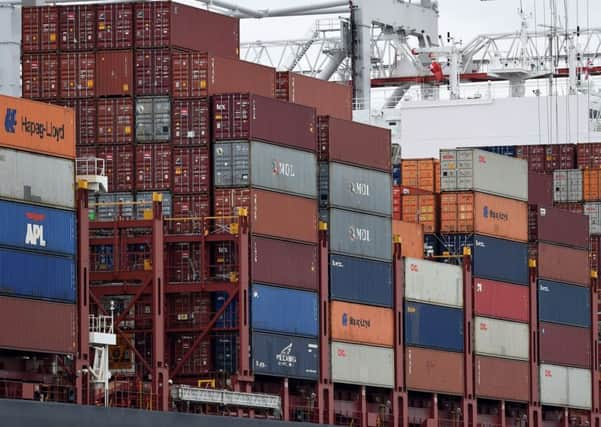UK trade deficit widens in August as low pound fails to reinforce exports


The Office for National Statistics (ONS) said the deficit in goods and services reached £4.7bn in August, missing economist forecasts for £4bn and coming despite hopes that a weaker pound had been boosting exports in the wake of the Brexit vote.
Imports rose by £2.6bn, while exports only grew by £100 million. Additionally, the overall deficit increase came after a drop of £1.1bn between June and July.
Advertisement
Hide AdAdvertisement
Hide AdThe post-referendum devaluation of the pound theoretically made British goods less expensive and more competitive on the international stage.
However, Mike Spicer, director of research and economics at the British Chambers of Commerce, said that while the fall in sterling has been seen as a boost to exporters, “this has also increased the cost of imported goods and materials, and Britain’s export sector is heavily integrated with global supply chains”.
He also said the Chancellor’s Autumn Statement, set for 23 November, must include measures “that support businesses looking to access new export markets, including expanding support for trade fairs and missions, to at least match that provided by our competitors. Businesses also need improved infrastructure at home to create a more competitive business environment and help get our goods and services to market.”
The Centre for Economics and Business Research (CEBR) said the “wider-than-expected deficit is slightly disappointing news as a low pound fails to have a more pronounced effect on UK export growth” although it also stressed that there can be volatility in monthly changes.
“Over time, CEBR expects the weaker pound to play a minor role in supporting exports, but the effect on many goods and services will be limited,” the organisation also said.
Meanwhile, the ONS also revealed yesterday that output in Britain’s manufacturing industry rebounded in August, up by 0.2 per cent, after a sharp month-on-month contraction in July and despite a worse-than-expected performance from industrial production.